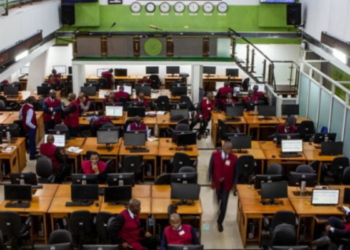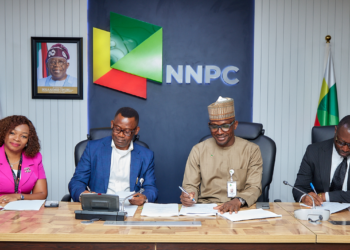News reports say President Mohammed Buhari has finally sent the Petroleum Industry Bill to the Senate for consideration and passage. The Bill according to media sources among other things still proposes the restructuring of the Nigerian National Petroleum Corporation and the Petroleum Products Pricing Regulatory Agency. The NNPC will be replaced by a limited liability company, which shall be called Nigerian Petroleum Company (NPC Limited). The bill also proposes the establishment of an agency known as the Nigerian Upstream Regulatory Commission which will be responsible for the technical and commercial regulation of upstream petroleum operations alone.
READ: Nigeria to handover TAM of refineries to Indian companies
The Petroleum Industry Bill (PIB) was first introduced to the National Assembly in December 2008. A presidential committee set up in 2007 to look into the oil and gas sector came up with this bill, which aims to increase transparency at the NNPC and to increase Nigeria’s share of oil revenue. Drafts of the bill, however, became very contentious due to objections from the international oil companies (IOCs) and the Nigerian National Petroleum
Corporation (NNPC). Consequently, the bill was never passed into law. Towards the end of 2015, the PIB was amended to speed up its passage and was broken into different bills, one of which was the PIGB, to address the governance framework of the oil industry. The Senate President noted that the plan was to expedite the aspects of the old law that were not controversial while the controversial areas could be placed on hold. The two houses passed
the PIGB in 2018 but the President did not sign the bill till it ran out of time.
READ: FG projects $2 billion annual revenue from Escravos Gas project
In all the versions of the Bill, key themes that have constantly featured include; The ownership and management of petroleum resources, functions and powers of the Minister of Petroleum, the establishment of the Nigerian Petroleum Regulatory Commission (NPRC) to act as a regulator for the industry and the restructuring of the NNPC. According to the Minister of State for Petroleum Resources Timipre Sylva, this version that has been sent to the National Assembly is a harmonisation of all the existing versions from 2000 to date with necessary adjustments to address the concerns raised by the industry players. One of such concern was the recommendation of a single regulator for the entire industry as was stated in the PIGB which has been addressed in the current version of the bill.
READ: FEC approves $40 oil benchmark for 2021 budget
With more than a decade of deliberations and revisions, it will be a great relief to all stakeholders if this version of the Bill is finally passed into law. Currently, Nigeria is said to have one of the least competitive Deepwater fiscal terms in Africa and is increasingly losing significant amounts of potential investments to other African countries. Many stakeholders hold strongly that new investments in the oil sector is dependent on the passage of the PIB which would take a more holistic approach in addressing issues around the fiscal terms especially following the passage of the Deep Offshore and Inland Basin Production Sharing Contracts (amendment) Bill, 2019 (PSC Amendment Bill).
CSL Stockbrokers Limited, Lagos (CSLS) is a wholly owned subsidiary of FCMB Group Plc and is regulated by the Securities and Exchange Commission, Nigeria. CSLS is a member of the Nigerian Stock Exchange.






















